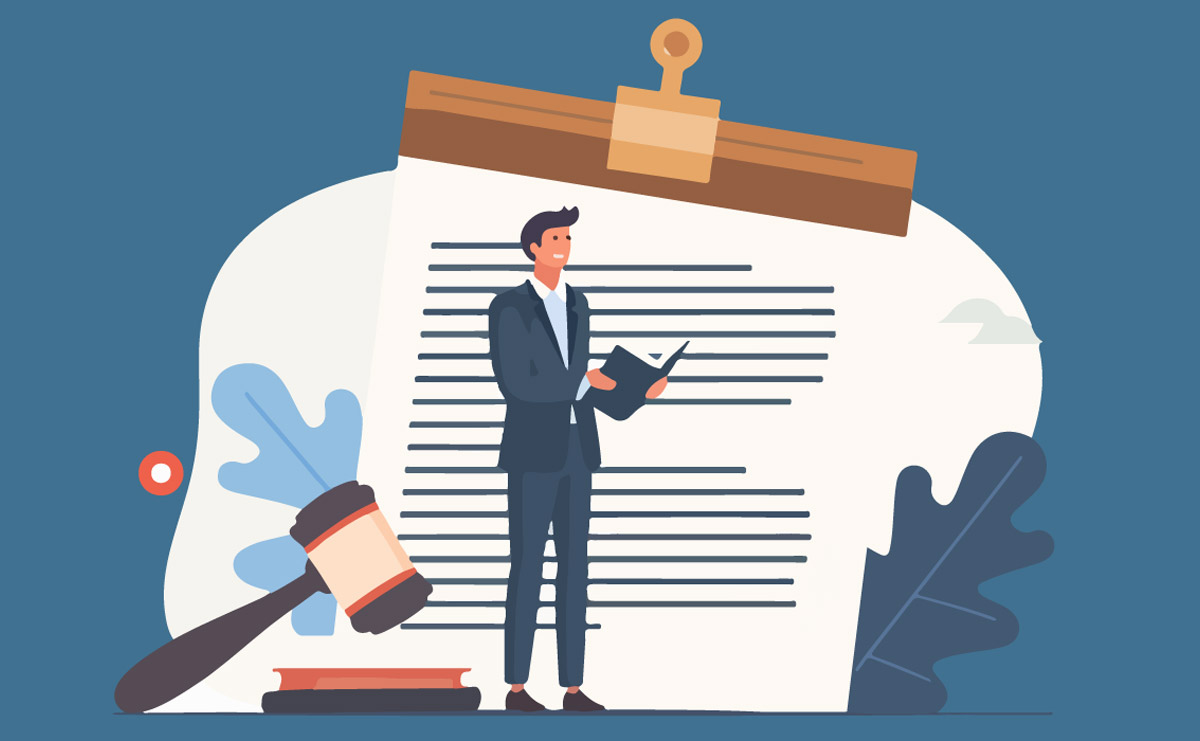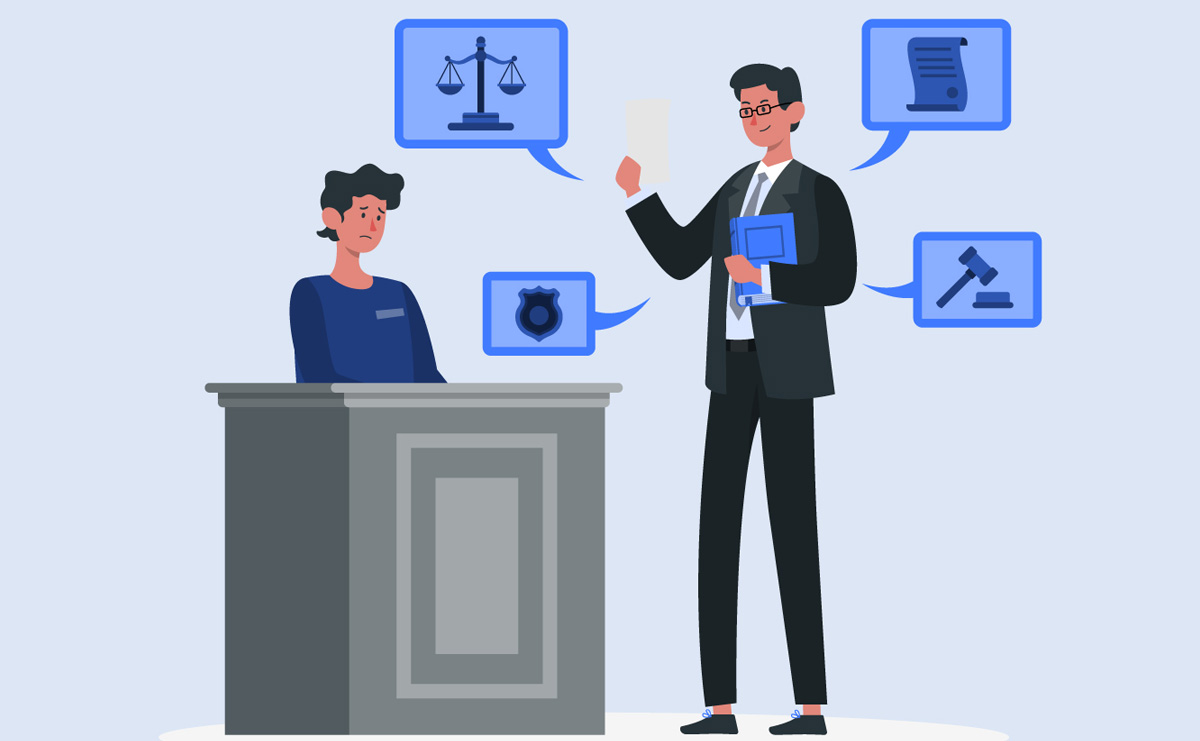Contents
Master Every Deposition Objection with Ease Using a Handy Cheat Sheet
Depositions are a critical aspect of pre-trial discovery, where attorneys gather crucial testimony that can significantly impact the outcome of a case. However, mastering objections during depositions can be challenging for both seasoned and new attorneys due to the variety of legal rules governing what can and cannot be asked or answered. That is where a handy cheat sheet comes in—allowing you to navigate every objection with ease confidently. Using deposition objections cheat sheets can help attorneys stay organized and confidently raise objections during depositions, ensuring they don’t miss key opportunities to protect their clients’ rights.
What is Deposition Objection?
A deposition objection is a formal protest made by an attorney during a deposition to challenge the propriety or legality of a question asked by the opposing counsel or to object to how a witness is answering. These objections preserve the attorney’s right to dispute later the use of particular testimony or evidence in court.
Unlike in a trial setting, objections during depositions do not usually stop the witness from answering the question immediately. Instead, the objection is noted on the record, and the testimony continues unless it involves privileged or highly inappropriate material. This creates a record that a judge can review later to determine whether the objection was valid and whether the challenged testimony should be excluded from the trial.
A well-prepared deposition objections cheat sheet is an invaluable tool for both seasoned litigators and new attorneys navigating complex questioning. Indeed, deposition objections cheat sheets can serve as a quick reference guide, allowing attorneys to object appropriately while maintaining the flow of questioning in high-stakes cases.
Why Objections Matter in Depositions
Objections during depositions serve two primary purposes: to preserve the record for future litigation and to protect the witness from answering inappropriate or unlawful questions. Unlike in a courtroom, many objections made during a deposition will not immediately stop the questioning. Instead, they are used to create a record that could later be raised in court, ensuring that evidence obtained improperly can be excluded. By raising objections, an attorney helps maintain the integrity of the deposition process and ensures that questions adhere to the legal standards of fairness and propriety.

Common Deposition Objections: What You Need to Know
A cheat sheet for the most common deposition objections can be a game-changer, helping you stay organized and ready for just about any situation. Here is a quick rundown of the key objections you should have on hand:
Objection to Form of the Question
If a question is unclear or improperly structured, it is common to object to form to ensure the witness is not misled. Use this objection to challenge questions not conforming to proper questioning techniques. Attorneys must know when to object to form to prevent improper or ambiguous questions from being answered.
Relevance
Questions in a deposition must be relevant to the subject matter of the case. If the opposing counsel asks questions that are irrelevant or far outside the scope of the issues at hand, you can object based on relevance. The primary purpose of a relevance objection is to prevent questions that explore topics or facts that do not have any bearing on the outcome of the case. In depositions, part of the discovery process, the scope of questioning can be broader than at trial, but it must still relate to the case being litigated.
Asked and Answered
This objection is used when opposing counsel asks the same question repeatedly, perhaps in different forms, to get a different answer. It prevents badgering or unnecessary repetition during the deposition.
Calls for Speculation
Witnesses should only directly testify to what they know, not what they believe or assume. Use this objection when the questioning asks witnesses to speculate on something they know nothing about.
Privilege
One of the most essential objections is the privilege, which protects confidential communications, such as attorney-client or doctor-patient relationships. A privilege objection is necessary when a question threatens to breach this confidentiality.
Misstates the Testimony
Sometimes, opposing counsel mischaracterizes previous testimony in their questions. This objection is crucial to correcting the record and ensuring that the witness’s prior statements are accurately reflected.
Calls for a Legal Conclusion
Witnesses, especially lay witnesses, need to be qualified to give opinions on legal matters. You can object if a question asks a witness to provide a legal conclusion—such as determining negligence.
Harassment
If the line of questioning becomes aggressive or intended to embarrass or harass the witness, this objection is critical. The goal of a deposition is fact-finding, not intimidation.
How a Cheat Sheet Helps You Stay Confident
A well-organized cheat sheet can be a game-changer during depositions, especially in high-pressure scenarios. Here is how it provides a strategic advantage and helps you stay confident:
Quick Access to Key Objections: In the midst of a deposition, getting caught up in the rapid flow of questions and answers is easy. A cheat sheet lets you reference common objections, quickly saving time and mental energy. With fundamental objections like “relevance,” “speculation,” and “form” readily accessible, you can make precise objections without hesitation. This eliminates the need to rely solely on memory, reducing the risk of overlooking a critical objection.
Minimizing Mental Fatigue: Depositions can last hours, requiring sustained focus and attention. Having a cheat sheet lightens the cognitive load, allowing you to maintain mental stamina throughout the proceeding. Instead of mentally tracking every objection or constantly reviewing the rules in your mind, you can rely on your cheat sheet for instant clarification, which helps keep your thinking sharp for the more nuanced aspects of the deposition.
Increased Accuracy and Efficiency: Objections are time-sensitive, and failing to object at the moment can mean losing the opportunity to challenge improper questions. A cheat sheet enables you to make objections quickly and accurately. When you are confident that you are using the correct legal terminology and raising valid concerns, you protect your client’s interests and create a stronger record for potential motions to strike or suppress testimony later in the case.
Customizable for Specific Jurisdictions: Different jurisdictions may have unique rules regarding depositions, and your cheat sheet can be tailored to reflect the nuances of the local legal environment. For example, some areas may limit certain types of objections, while others may have additional rules governing the questioning of certain witnesses. By customizing your cheat sheet to account for these variations, you can ensure your objections align with local court rules, avoiding potential sanctions or objections being overruled.
Reducing Stress and Anxiety: Even experienced attorneys can feel the weight of high-stakes depositions. The pressure to protect your client, maintain professionalism, and adhere to procedural rules can be intense. A cheat sheet acts as a safety net, giving you peace of mind that you have a structured resource to fall back on. Knowing you are prepared eases the anxiety of being caught off guard or making an error in real-time, allowing you to approach the deposition with greater confidence.
Adaptable to Experience Level: Whether you are a seasoned litigator or relatively new to depositions, a cheat sheet is an adaptable tool. For newer attorneys, it serves as a guide to ensure they make the proper objections at the right time. For more experienced lawyers, it can be a refresher for less frequently encountered objections or jurisdiction-specific rules. In both cases, the cheat sheet helps you perform at your best.
A Learning Tool for Continuous Improvement: Beyond just being a reference tool, a cheat sheet can evolve with you as you gain more experience in depositions. After each deposition, you can review your objections and make notes on what worked well or where you may need to adjust your approach. Over time, this allows you to refine your cheat sheet to reflect your growth as a litigator, ensuring you remain prepared for increasingly complex or challenging depositions.
How Can Deposition Objections Be Key to Future Legal Proceedings?
Deposition objections can be critical in shaping future legal proceedings for several reasons. They are tools for managing the flow of information during the discovery phase, protecting a client’s legal position, and influencing what evidence is presented during the trial. Here is how deposition objections can be fundamental to future legal proceedings:
Preserving the Record for Trial
Objections raised during a deposition are recorded in the transcript, creating a formal record for future review. This is important because depositions are part of the pre-trial discovery process, and certain parts of the testimony may be introduced at trial. The right to challenge that evidence later may be waived if an attorney does not object to improper questions or testimony during the deposition. By objecting at the deposition, the attorney ensures that the court can rule on the objection, potentially excluding damaging or irrelevant testimony before trial.
Protecting Privileged Information
Deposition objections protect privileged information, such as attorney-client communications or doctor-patient confidentiality. By objecting to questions that attempt to elicit privileged information and instructing the witness not to answer, the attorney ensures that this information does not become part of the record. If privileged information is disclosed without objection, the privilege may be waived, allowing the opposing party to use it against the client at trial.
Preventing the Use of Improper Evidence
Depositions can introduce a wide range of testimony, but only some are admissible at trial. Objections made during the deposition can challenge improper questions or answers that would otherwise be allowed into the record. These objections prevent the attorney from presenting improper evidence at trial, protecting their client’s case.
Establishing a Basis for Motions in Limine
A motion in limine is a pre-trial request to exclude specific evidence or testimony from being introduced at trial. Deposition objections can provide the foundation for these motions. If an attorney objects to specific testimony during a deposition, they can later file a motion in limine, asking the court to exclude that testimony based on the objection. This helps ensure the jury is not exposed to harmful, irrelevant, or inadmissible evidence.
Controlling the Narrative for Trial
By strategically objecting during depositions, attorneys can shape the narrative presented at trial. For example, if opposing counsel is attempting to establish a particular theory or introduce harmful testimony, well-timed objections can disrupt this line of questioning and minimize its impact. This protects the client and allows the attorney to control the deposition’s flow, preventing the opposing side from creating a misleading or biased record.
Preserving the Right to Appeal
In some cases, the outcome of a trial may be influenced by the admissibility of certain testimony or evidence. If an attorney objects during a deposition and the court later overrules that objection at trial, the objection is preserved for appeal. If the case goes to appeal, the appellate court can review the objection and decide whether the trial court’s decision was correct. Failure to object during the deposition can result in the forfeiture of this right, making it difficult to challenge the admissibility of evidence on appeal.
Preventing Harassment or Bad Faith Conduct
Depositions can sometimes be used as a means for harassment or to intimidate witnesses. An attorney can protect their client or witness from improper tactics by raising objections to bad faith or oppressive questioning. Rule 30(d)(3) of the Federal Rules of Civil Procedure allows attorneys to stop a deposition if it is being conducted in a way that unreasonably annoys, embarrasses, or oppresses the deponent. This is important because it prevents the opposing party from using depositions as a means to harass or intimidate, ensuring that the process remains focused on fact-finding rather than unfair tactics.
Creating Leverage for Settlement Negotiations
Strategic objections during depositions can also provide leverage during settlement negotiations. Suppose an attorney is able to object to damaging testimony and create doubt about whether it will be admitted at trial. In that case, the opposing party may be more willing to settle the case favourably. In addition, successful objections can limit the scope of the evidence available at trial, making the opposing party less confident about their chances of winning and more open to negotiating a resolution.
Setting the Stage for Summary Judgment
In some cases, depositions can provide the foundation for a motion for summary judgment, where one party argues that there are no genuine issues of material fact and that they are entitled to judgment as a matter of law. Objections made during depositions can help frame the legal arguments for summary judgment by challenging the admissibility or relevance of key testimony. If the deposition testimony is successfully excluded, it can weaken the opposing party’s case and increase the chances of winning on summary judgment without the need for a full trial.
Clarifying the Legal Issues for Trial
Objections made during depositions help clarify the legal issues central to the trial. By objecting to questions that go beyond the case’s scope or introducing irrelevant matters, the attorney can focus on the key legal issues and prevent the opposing party from introducing extraneous or prejudicial information. This can streamline the trial and make it easier for the jury to understand the core legal issues.
Frequently Asked Questions
What happens if you object to improper questions in a deposition?
Objecting to improper questions during a deposition is crucial for safeguarding your client’s rights and keeping the discovery process in check. These objections help make sure only relevant and admissible testimony comes into play later, whether it is for building your trial strategy, negotiating a settlement, or preparing for a possible appeal.
Can counsel object to a question in a deposition?
Yes, counsel can object to a question during a deposition. Making objections during a deposition is a key aspect of the process, helping attorneys protect their clients’ rights, ensure fair questioning, and preserve issues for later court rulings. However, deposition objections are handled somewhat differently than objections during a trial.
Can you object to a deposition question during a trial?
No, you cannot object to a deposition question during a trial because the deposition is part of the pre-trial discovery process, not the trial itself. However, you can object to using deposition testimony during a trial if you believe it violates the rules of evidence or contains improper material.
Final Thoughts
In the end, mastering deposition objections is a crucial skill for any attorney, whether you are seasoned or just starting out. These objections are not just about following procedure; they are about protecting your client’s rights, controlling the narrative, and shaping the case as it moves forward. A well-timed objection can prevent improper or irrelevant evidence from being used later on, and it helps preserve issues for trial and appeal.
Having a cheat sheet handy during depositions can make all the difference. With a deposition objections cheat sheet on hand, attorneys can reduce mental fatigue and focus on the substance of the deposition without scrambling to recall procedural rules. Ultimately, objections are not just about what is happening in the moment—they can influence settlement negotiations, trial strategies, and even the final verdict. With the right preparation and tools, you can confidently handle any situation that arises, ensuring the best possible outcome for your client.
RunSensible is an all-in-one business management platform designed to streamline operations for law firms and other service-oriented businesses. It offers tools, including CRM, billing, client intake, and workflow automation, to help firms manage their processes efficiently. By integrating various functions into one platform, RunSensible allows firms to improve productivity, enhance client communication, and drive growth, all while reducing administrative burdens. Whether managing cases, tracking leads, or optimizing financials, RunSensible provides the flexibility and power needed to stay ahead in a competitive industry.
Disclaimer: The content provided on this blog is for informational purposes only and does not constitute legal, financial, or professional advice.







